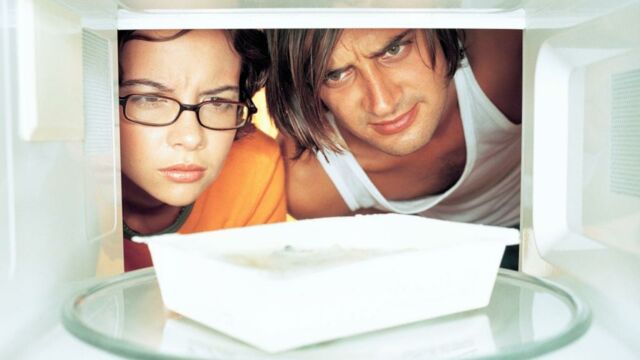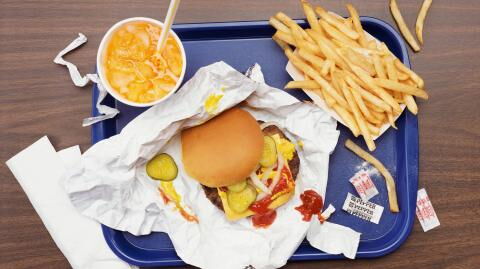Should we throw away our plastic containers? Popularised by the Tupperware brand, these boxes have been invading our kitchens for several decades. It has to be said that they are practical, lightweight and sturdy. But they have a huge disadvantage, highlighted in a new study by ACS Publications.
Discover our latest podcast
Plastic containers and particles
Kazi Albab Hussain is a researcher at the University of Nebraska, but has recently become a father. Like all parents, he is concerned about the health of his child. In an interview with Wired, he explains:
I've bought a lot of baby food and found that, even in baby food, there are a lot of plastics.
The researcher studied how a plastic container reacts when heated in a microwave oven. And the results did not make him happy... According to his study, frightening quantities of plastic particles spread through a plastic container when it is heated, so much so that Kazi Albab Hussain was 'terrified' after taking a look at his microscope. The study states:
Some containers were found to release up to 4.22 million microplastics and 2.11 billion plastic nanoparticles from a single square centimetre of plastic surface within 3 minutes of microwave heating. Refrigeration and storage at room temperature for more than six months can also release millions or even billions of microplastics and nanoplastics.
Read more:Microplastics are in our bloodstream, what does this mean for us?
The health effects of microplastics and nanoplastics
In other words, when we store food in a plastic container and heat it up, some of the material in the container ends up... on our plate. While our bodies are able to eliminate some of the plastic thanks to the work of our kidneys, things get more complicated when nanoscopic particles find their way into our digestive system.
For the time being, the impact of microplastics and nanoplastics on health remains to be studied, as the scientific community is still divided on the subject. However, in the course of his study, Kazi Albab Hussain and his team exposed kidney cells to plastic particles leaking from plastic baby containers. The result?
After two days' exposure to concentrated microplastics and nanoplastics, around 75% of kidney cells died, more than three times as many as cells that had spent two days in a much more dilute solution.
Read more:Stool of baby has 10 times more microplastics than an adult, shocking study finds
This article has been translated from Gentside FR.
Sources used:
ACS Publications: Assessing the Release of Microplastics and Nanoplastics from Plastic Containers and Reusable Food Pouches: Implications for Human Health
National Geographic: À quel point les microplastiques sont-ils nocifs pour notre santé ?
Wired: For the Love of God, Stop Microwaving Plastic















